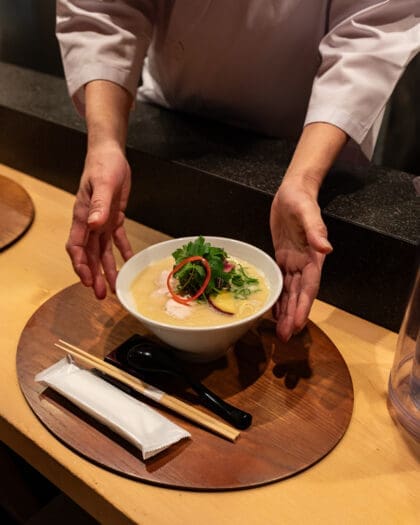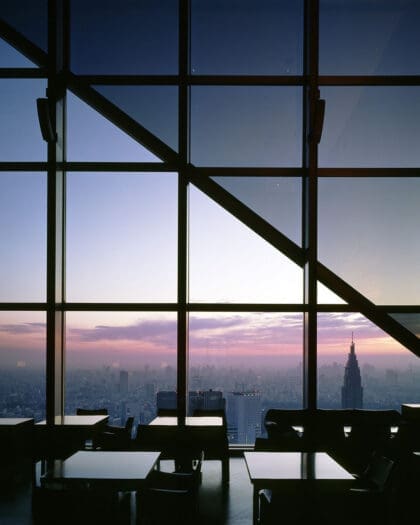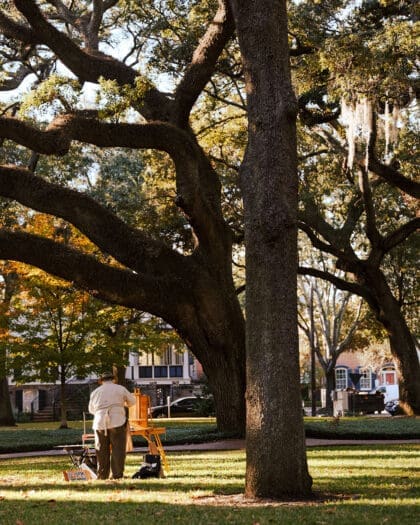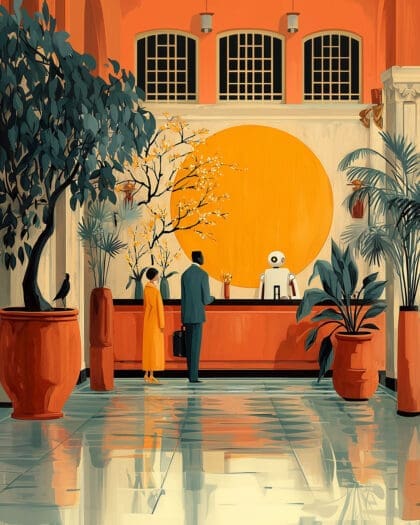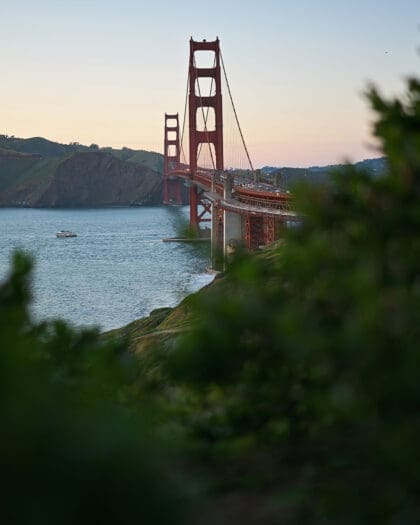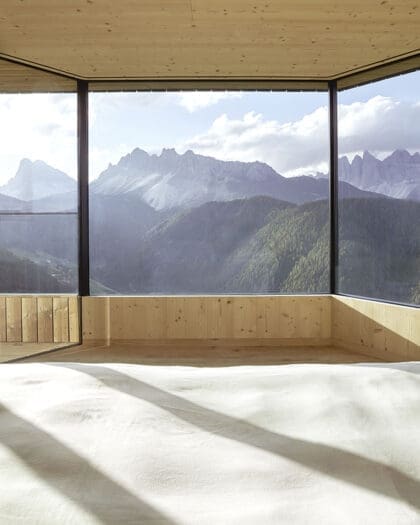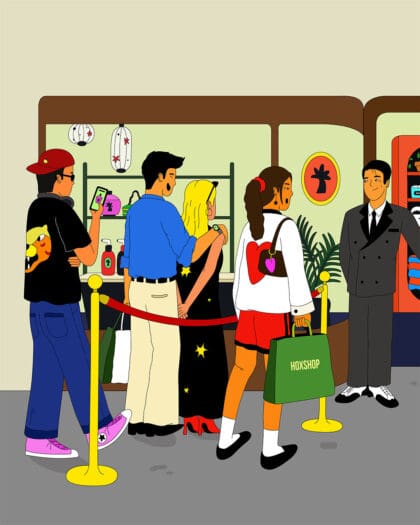
How are hotels reinventing retail exclusivity?
As hotel souvenirs are increasingly seen as badges of belonging and discerning travellers seek out exclusivity, the next big thing in retail might not be launched by a fashion brand, but by a hotel
Prior to the digitalisation of retail, discerning shoppers would travel to pick up covetable wares: fragrance in Paris; ceramics from Japan; rugs in Morocco. Now that almost everything is available to buy online, true exclusivity is increasingly rare.
Countering this is an evolving boom in hotel retail. Bringing fresh meaning to the phrase, ‘been there, bought the T-shirt’, hospitality merchandising is now a cornerstone of a good hotel’s offering. Walk into any Hoxton hotel and you’ll find a retail space in the lobby, thoughtfully curated with local brands and collaborations that aim to reflect the city’s creative scene. In Los Angeles, you can pick up apparel designed by Bricks & Wood, while the Chicago outpost offers an exclusive scent created by Clue Perfumery, as well as clothing by Stock Mfg. The Hoxton Southwark in London regularly hosts the Salad Days makers market, which spotlights the area’s talent and it also has an upcoming release with Hackney-based fashion label House of Sunny. These items are limited editions and are only available to purchase in person when you visit the hotel.
“As a brand, The Hoxton is homey and layered, and we try to reflect that in our retail offerings,” says chief operating officer Rob Andrews.
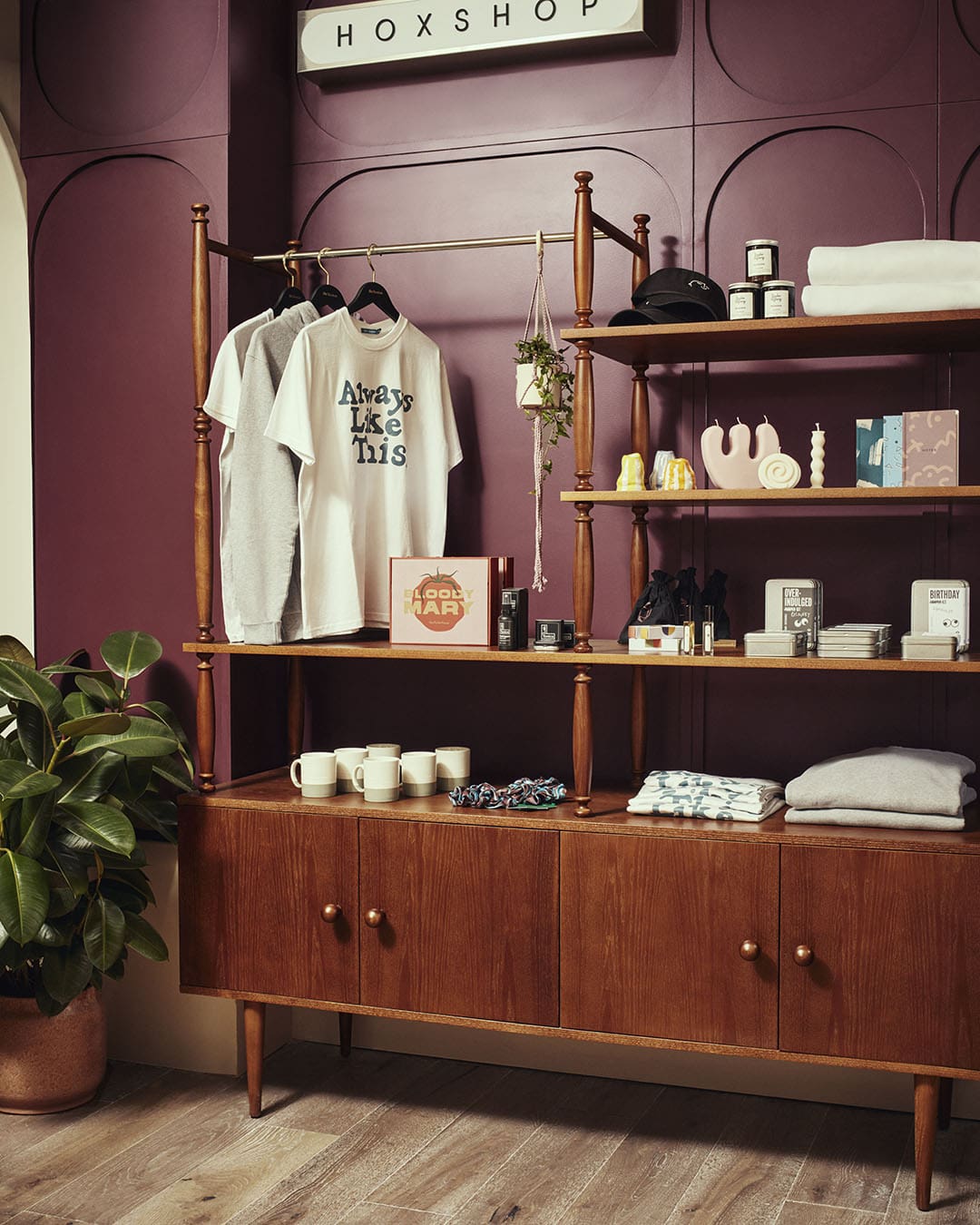
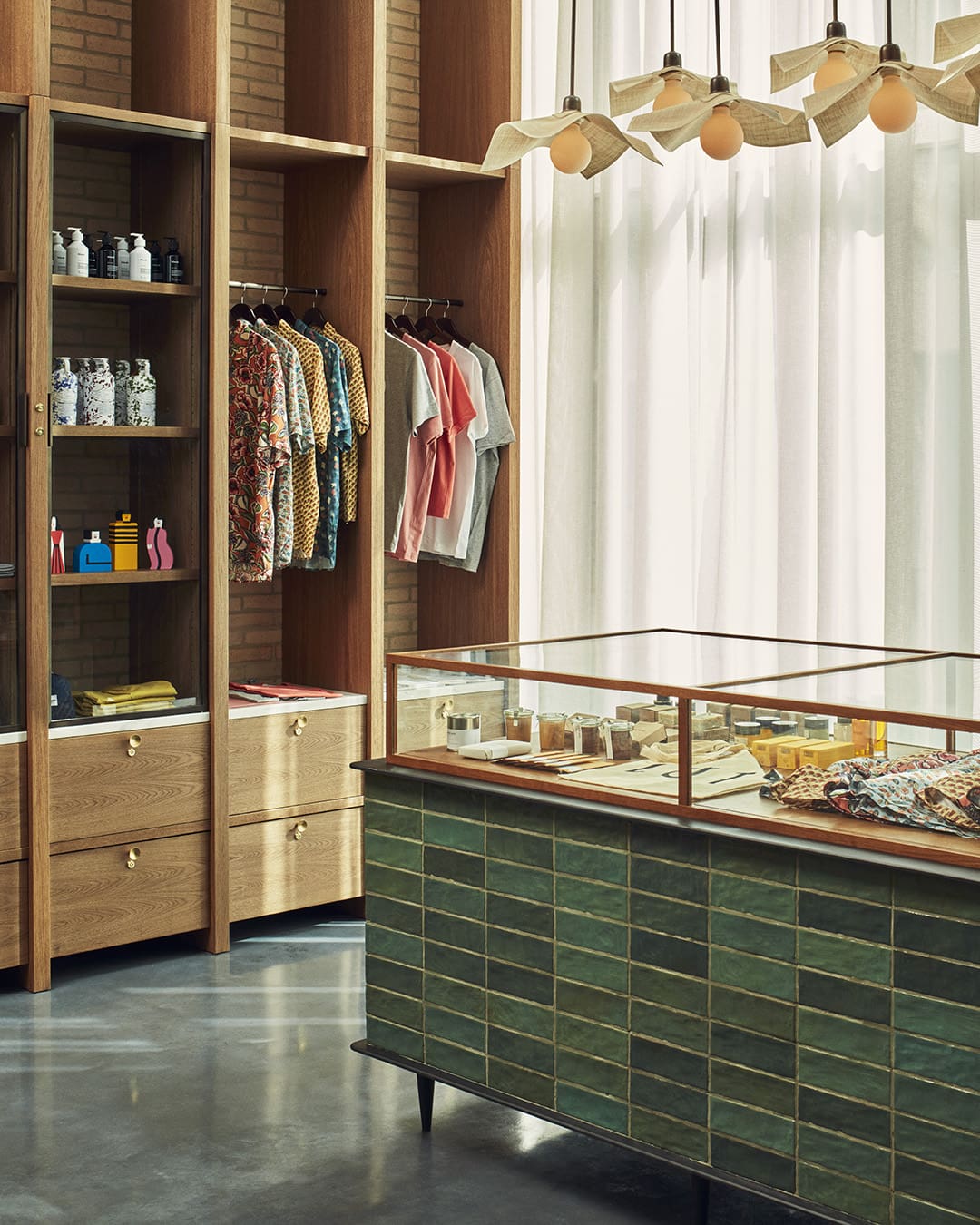
“To us, it’s important that not everything comes from a big box in the mail. We need artisans, ceramicists and jewellery makers,” says Erin Lindsey, vice president of brand and community at Bunkhouse Hotels, which has boutique hotels across the US and Mexico. Akin to The Hoxton, each Bunkhouse location has a unique retail space, showcasing artists and emerging brands. “Supporting small, local businesses creates such a strong sense of place. Folks are looking for authentic experiences in travel, and through strong local connections and intimate offerings, lifestyle brands offer a new perspective on a traditional hotel stay.”
The Mustard Hotel in Tokyo takes exclusivity one step further with its Creators in Mustard initiative. Visiting artists and makers hold exhibitions during their stay, pieces from which other guests are then able to buy. In 2024, the hotel hosted a month-long pop-up with the Home Economics Experiment art collective, where guests could pick up limited-edition sweatshirts, tees and tote bags.
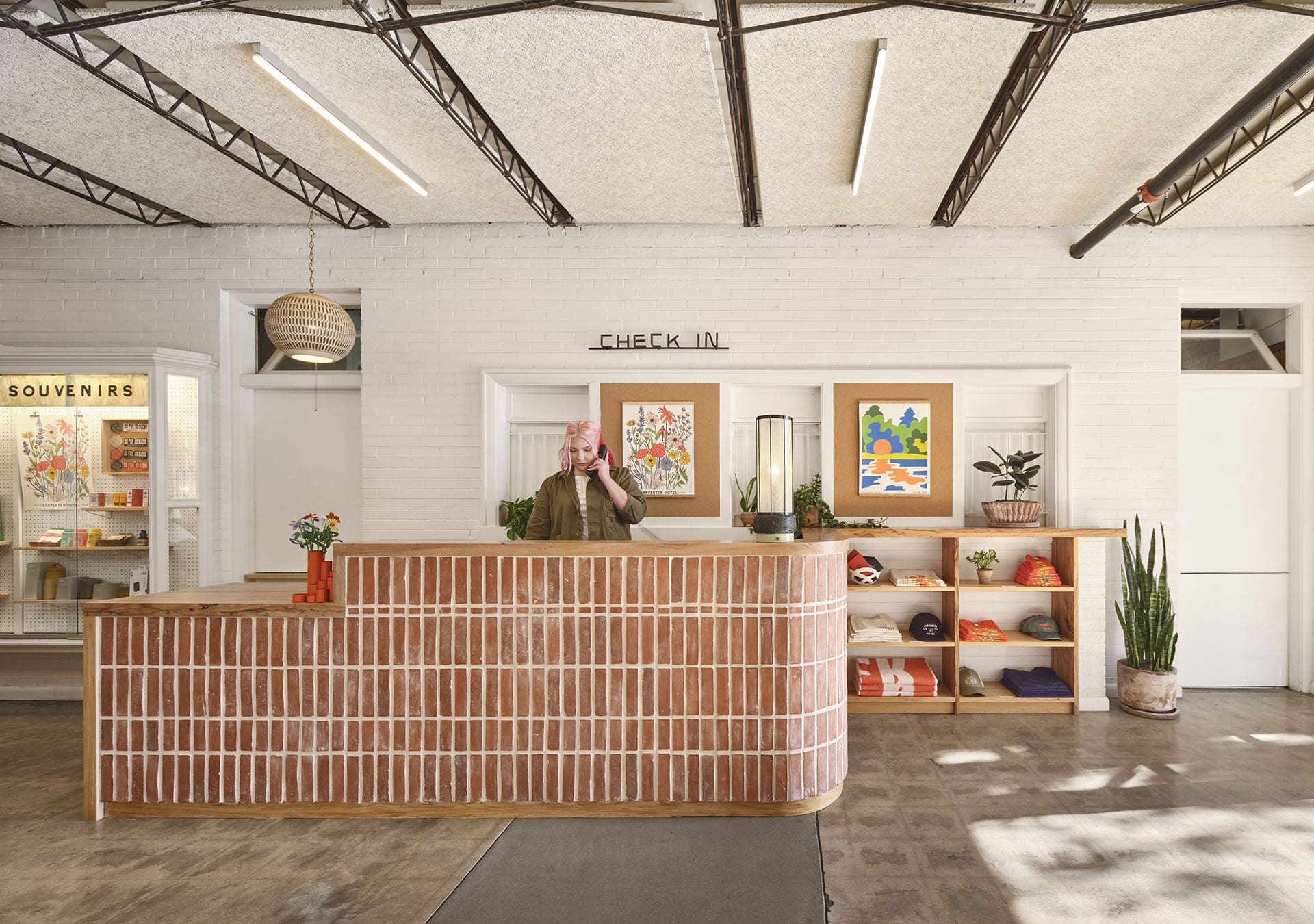
The history of hotel merchandising
Previously, branded hotel merchandising was often regarded as naff and predictable, with hotels rarely offering more than a generic pen or pair of slippers that were differentiated only by a logo. Early innovators in the field such as Ace Hotel and The Standard recognised the value in extending a customer’s experience beyond the bedroom with a tangible item, which also reflected a hotel’s design credentials.
When Ace Hotel Portland opened in 2006, American heritage brand Pendleton, which is based in the city, created wool blankets for the guest rooms. These were so popular that Ace made them available to purchase and subsequent Pendleton collections were launched in New York and Los Angeles, which are still going strong today. More recently, Ace marked the opening of its Athens location with a limited-edition merchandise collection created in collaboration with Takis Zontiros, founder of Greek Visions. Visitors will also find a limited-edition line of handcrafted jewellery by Greek jeweller Kiki Karayiannis of Vasiliki Studio. “We strive to be a destination for one-of-a-kind products,” says chief brand officer Meriem Soliman. “We are driven by a deep appreciation for craftsmanship and cultural storytelling.”
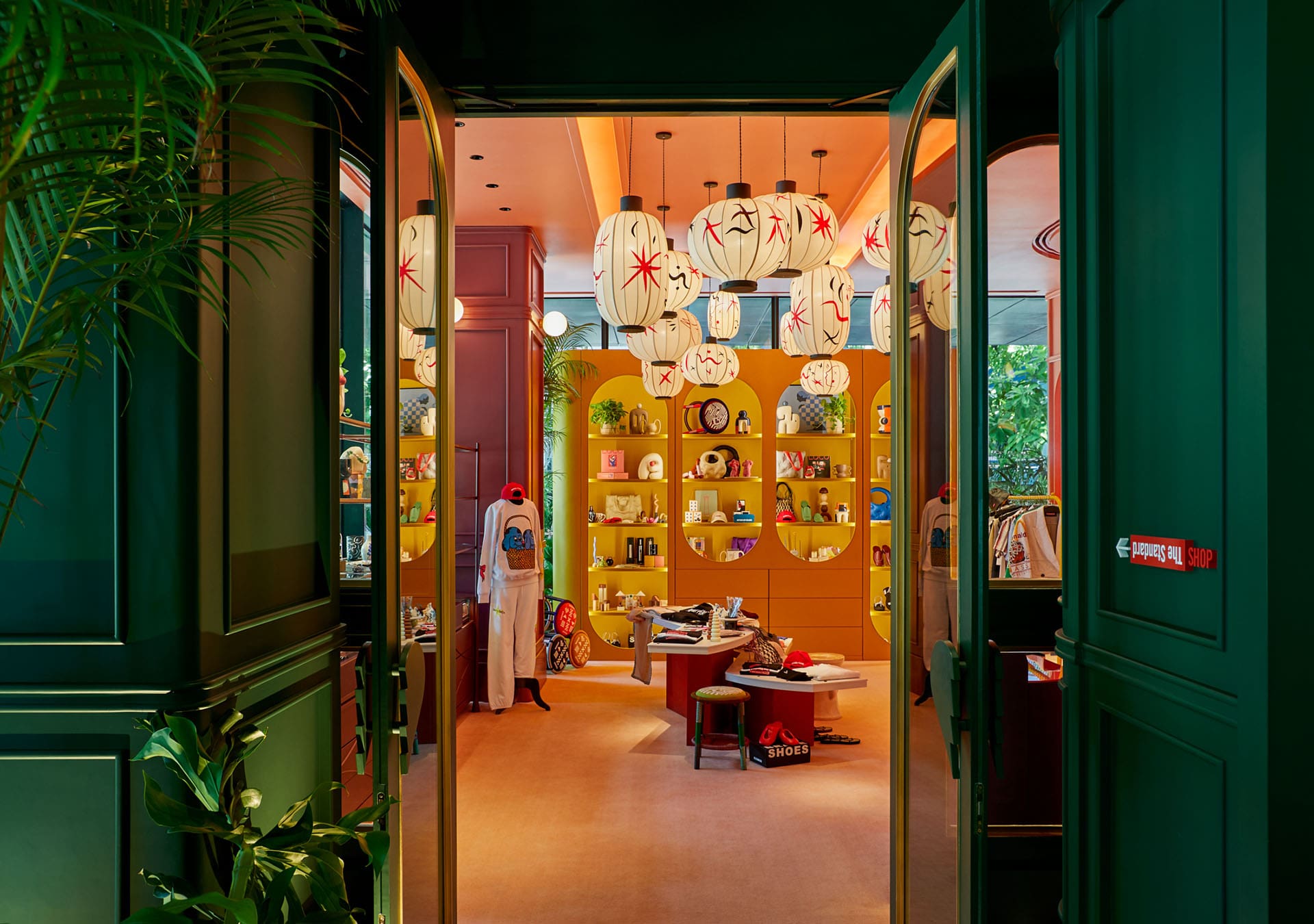
“From day one, we saw an opportunity to provide guests something beyond the traditional souvenir,” says Karla Evans, global head of brand marketing and culture at The Lifestyle Group, the Hyatt-owned collection of hotels that includes The Standard and Bunkhouse. “Over our 25 years, this concept has evolved from a small selection of essentials to a fully fledged lifestyle retail experience.”
The Standard is a regular partner across fashion weeks and design fairs, as well as hosting artist-in-residence programmes, so it is little surprise that its retail offering reflects a brand with its finger on the cultural pulse. The hotel group’s global collaborators include fashion talent Christopher Kane, furniture designer Kouros Maghsoudi, American artist Daniel Arsham and non-profit organisation RAISEfashion. A collection of pasta-shaped pool floats launched for Art Basel Miami in 2022 in partnership with Jumbo NYC remains a bestseller, while a new line of limited-edition branded T-shirts and totes has been created by Jazzy Sport, a Tokyo-based music and sports collective.
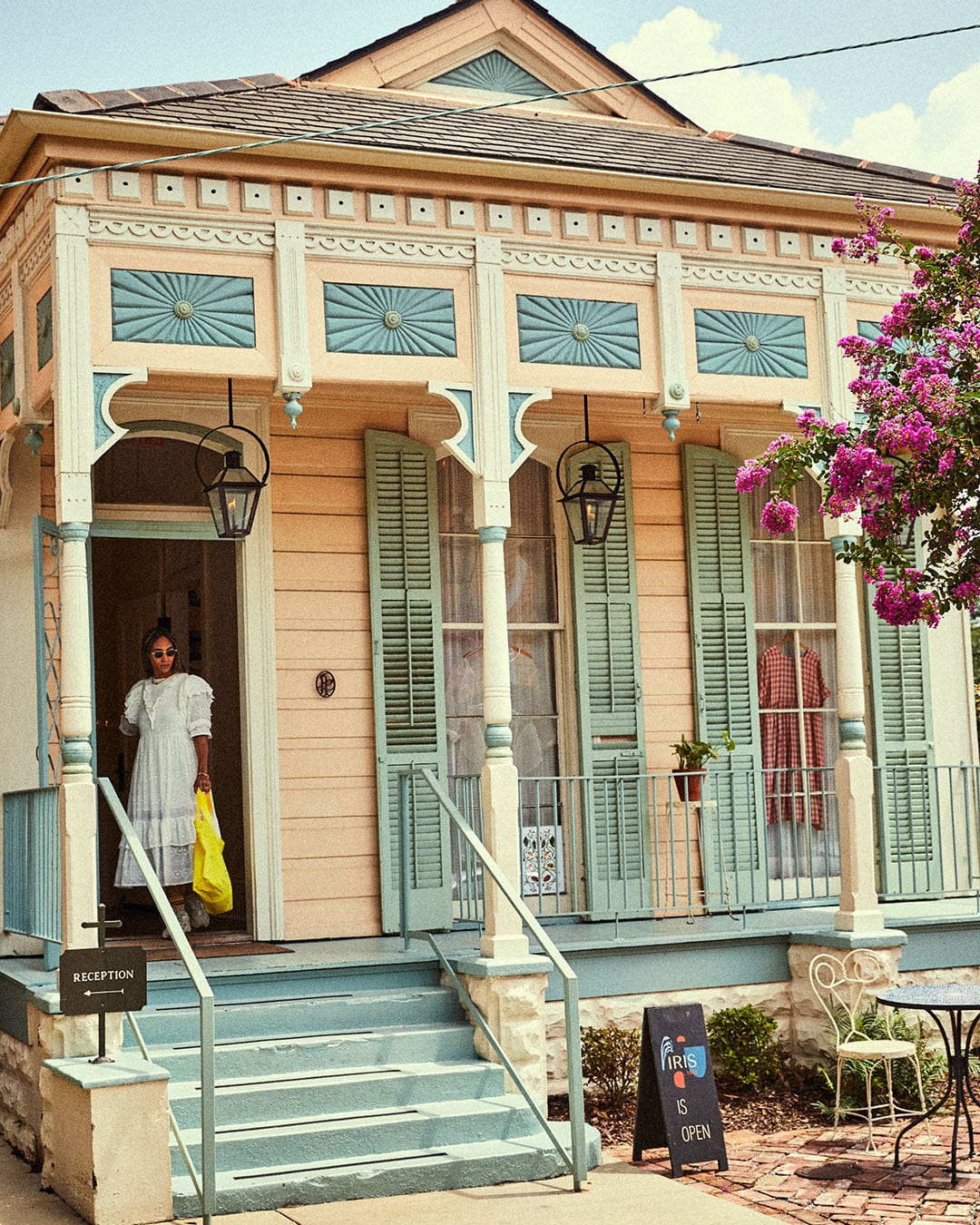
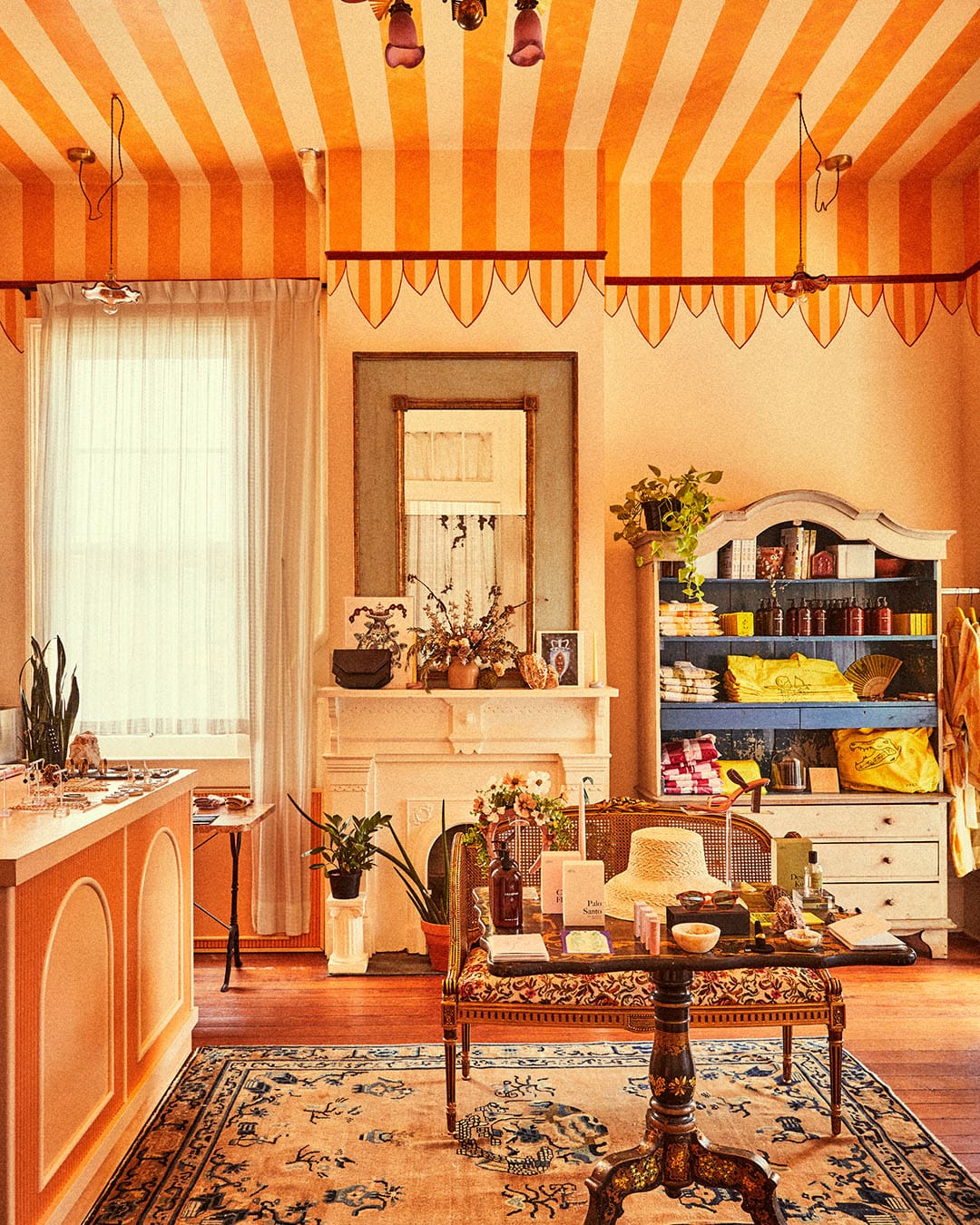
Ash, whose portfolio of boutique hotels across the US includes Hôtel Peter & Paul in New Orleans and The Siren in Detroit, offers a similar model for hotel retail. While the retail arm of Ash, called Souvenirs, is available online, there are additional items from local brands exclusively available at each hotel. Guests can pick up silverware, pyjamas and distinctive tote bags, alongside one-of-a-kind and vintage pieces. “Our properties are so deeply rooted in the cities and neighbourhoods that house them, and our retail offering reflects that,” says Allegra Lorenzotti, the group’s brand director. “Bringing home a meaningful item creates a lasting connection to the journey.”
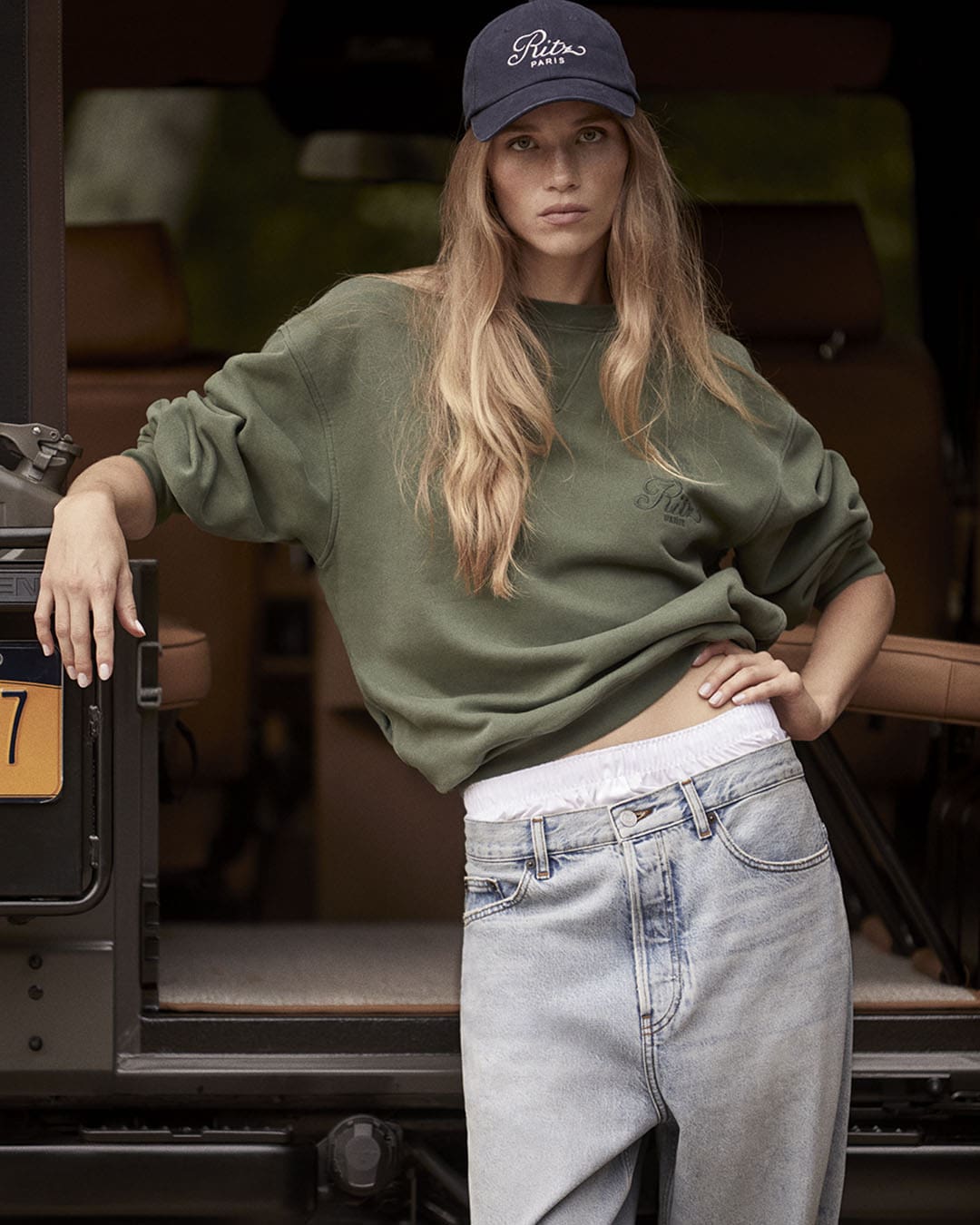
The rise of resort core
In 2024, Bloomberg coined the term ‘resort core’ to refer to the trend for high-end hotel-branded merchandise. Few other purchases provide such instant cachet.
One of the most successful forays is the partnership, launched in 2021, between Californian fashion brand Frame and the Ritz Paris, which includes limited-edition cashmere jumpers, T-shirts and caps. Items sold out quicker than hotel rooms and the early pieces continue to retain their resale value, as keen completists scour eBay and Vestiaire Collective for an original cashmere pullover. The 2025 release, including jumpers from 775 GBP, is already sold out in most sizes. “The success and demand has far exceeded our expectations,” says Robert Swade, CEO of Ritz Group.
Hotels recognise that discerning travellers like to have something that everybody else doesn’t; even better if it’s responsibly made to the highest standard. Plus, these travellers are proud to be ambassadors for their favourite hotel, whether that’s by carrying a branded water bottle or hanging a monogrammed robe in their bathroom.
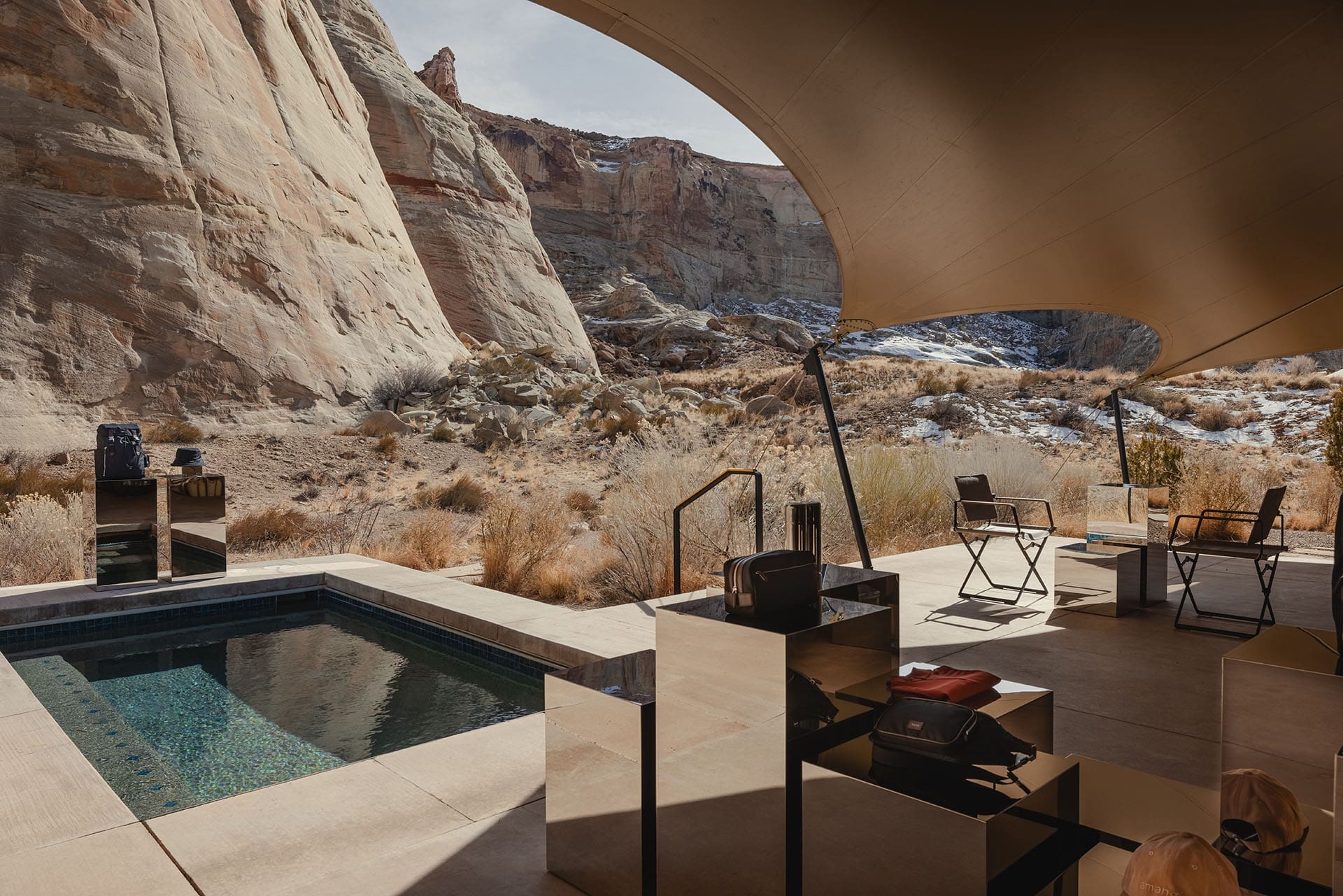
Aman, purveyor of some of the most expensive hotel stays in the world, gives branded merchandise to returning visitors, creating a genuine money-can’t-buy signifier of exclusivity. T-shirts and socks are emblazoned with ‘Aman Junkie’, the term affectionately given to its most loyal devotees. Its retail arm, Aman Essentials, reflects the quiet luxury and stealth-wealth ethos that the group has become known for and includes Italian leather goods, clothing and fragrances. In 2023, the Aman Cabana shop launched at Amanpuri in Phuket, Thailand, showcasing exclusive items from the Aman Essentials line. A second Cabana followed in February 2025 at Amangiri, a luxury desert retreat in the wilderness of Utah.
“These items are more than just a tangible memory, they make guests feel they are part of an exclusive club,” says Nicola Ogilvie, head of retail at The Gleneagles Hotel in Scotland. “It is also a real fashion statement, and reflective of the consumer demand for augmented experiences.”
Gleneagles is owned by Ennismore, the hospitality company behind The Hoxton. In 2024, the hotel unveiled its plush Sporting Club, which dedicates sizable square footage to a boutique lined with branded sweatshirts, sports bags and accessories. Clothing has proved as popular as the club’s padel courts, including two hoodies designed in partnership with ethical British clothing label Pangaia. Gleneagles has a history of hit collaborations, including a limited-edition Barbour jacket, created for the hotel’s centenary in 2024, and an exclusive parka by Marfa Stance to mark the British label’s pop-up shop in the hotel’s shopping Arcade.

What does the future look like for hotel retail?
Hotels recognise the importance of provenance and the value of storytelling. Merchandise is no longer a nice-to-have, but a key component of a company’s marketing strategy. A recurring sentiment is a desire to offer limited edition and one-off pieces, which reflect and support local creative communities.
“We are looking at ways to continue growing while holding onto that sense of individuality,” comments Erin Lindsey of Bunkhouse. Therein lies the challenge for hotel retail: scaling and evolving while supporting the small businesses that it aligns with; meeting demand while retaining exclusivity.
Additionally, as hotels integrate further into the worlds of art and fashion, there is no reason why a hotel cannot rival a fashion brand. “If a hotel has a strong sense of self and a compelling story to tell, it can definitely evolve into a fully fledged fashion and lifestyle brand,” says Robert Swade of Ritz Group. “It becomes more than just a hotel.”



